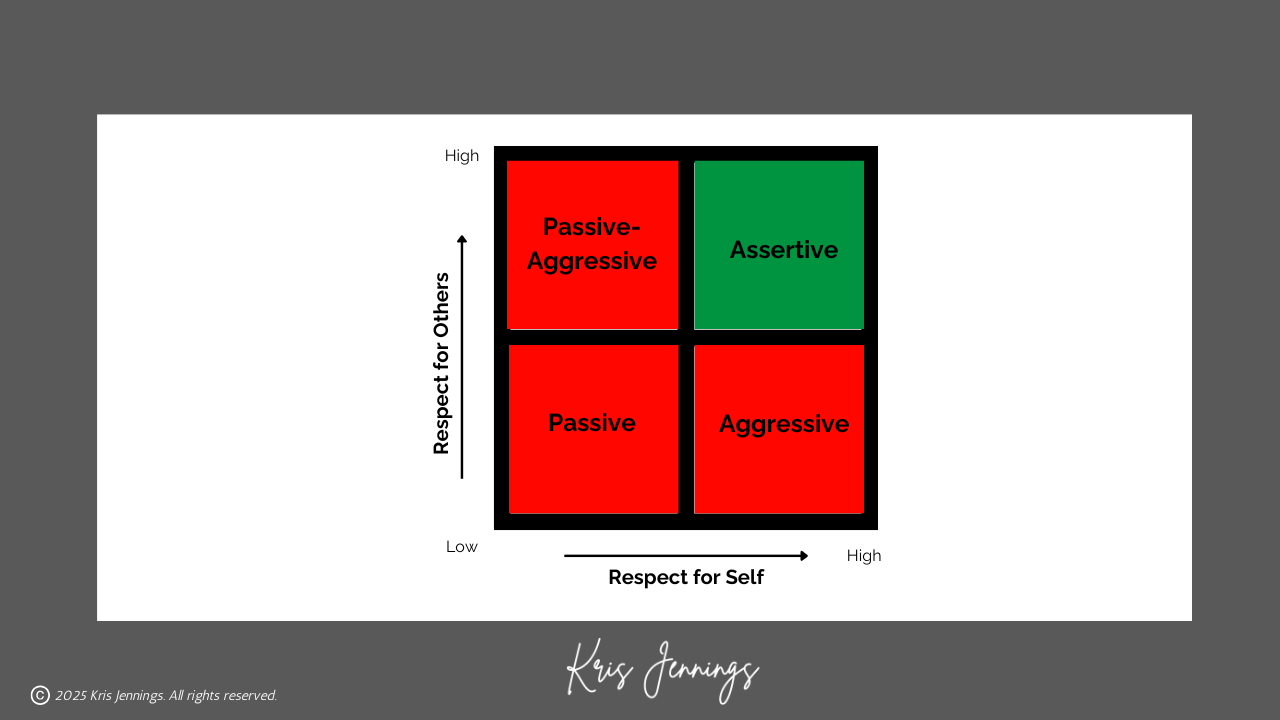
How project managers get more done using assertive communication
Mar 04, 2025One negative behavior pattern I often encounter in client teams is passive-aggressive communication.
This dynamic typically unfolds as follows:
Project manager: "You've got to get it done. I don't care what it takes, just do it."
Team member: "Fine." [If there's any response at all].
Followed by inaction.
The project manager often becomes aggressive in their communication style after several attempts to convey urgency. But as the deadline looms and the task still isn't getting done, they resort to other emotions -- anger.
This is a common challenge as teams near the finish line of significant projects.
The ironic part is that the passive response by the team member also often reflects anger. They're frustrated that they can't effectively communicate the help they need or the other constraints that prevent them from getting the task done.
They may even feel they've already tried communicating those limits and boundaries, and not been heard.
Both parties end up feeling disrespected.
Use and model a mutually respectful communication style
The key to alleviating this frustration is to communicate assertively, honoring both your needs and the other person's interests. Project managers who consistently model this communication style earn the trust and respect of their team members.
An assertive exchange might look like this:
Project manager: "I know you have a lot on your plate. This task is due at the end of the week. We can't move to testing until it's done. Will you have time?"
Team member: "It's not my top priority, but I understand the time constraints. I'll update you tomorrow based on what I accomplish today."
The difference between passive-aggressive and assertive exchanges lies in the respect each individual maintains for themselves and the other person. There's an easy way to do this consistently.
An easy method to consistently communicate assertively
The easy way to communicate assertively consistently, even when situations are stressful, is to remember that the other person always has a choice. When they choose to do it, it will be easier and more positive. This starts with empathy.
Here are the three steps to this method:
1. Express empathy for the other person.
Project manager: "I know you have a lot on your plate."
2. Express your needs.
Project manager: "This task is due at the end of the week. We can't move to testing until it's done."
3. Ask the other person about their needs.
Project manager: "Will you have time?"
Assertive communication occurs when each person recognizes that emotions—like anger—can hijack collaboration and teamwork. Maintaining respectful communications that assertively share needs and ask questions allows for a more productive dialogue. When people feel respected and heard, they are more likely to choose to put in extra effort.
Being respectful in the moment doesn’t take extra time, but it does require emotional awareness to avoid destructive behaviors.
The best time to practice assertive communication skills
Building this muscle memory by practicing assertive communication skills is best done when there is less stress, such as early in a project.
Early team-building exercises in dedicated workshops or weekly team meetings can help establish respectful communication patterns. Of course, the more a project manager models this behavior, the more likely it is that the team member will mirror the respect.
While some may perceive these "soft" skill activities as time-wasting, they actually strengthen relationships and prepare teams for respectful exchanges when time is tight.
Increasing your awareness of your emotions during time-constrained work environments like project teams can help you communicate more respectfully....helping yourself and others in the process.
Need help influencing others on your project team? This is just one method I draw upon during 1:1 Coaching & Mentoring. Learn more.
Feel more confident and capable
My signature change leadership mentoring program, Designed to Influence, teaches change leaders and change agents practical ways to influence change on the job using my proven changecapableTM method.

